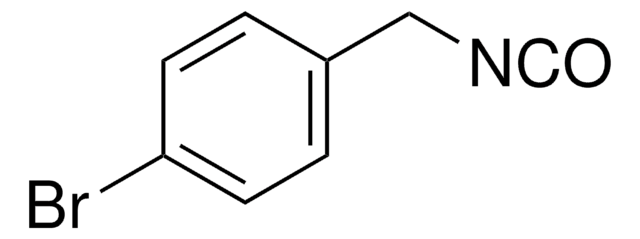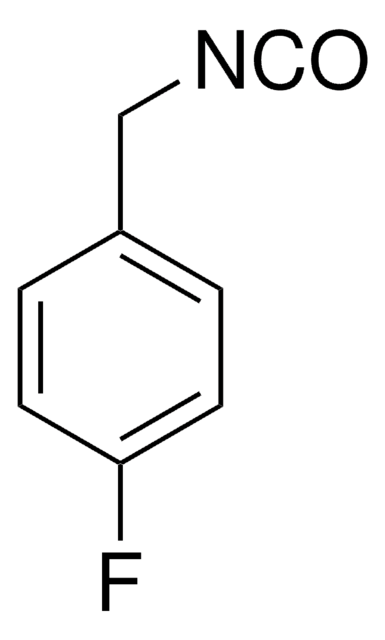About This Item
Recommended Products
Assay
98%
refractive index
n20/D 1.433 (lit.)
bp
60-66 °C/0.6 mmHg (lit.)
density
1.143 g/mL at 25 °C (lit.)
storage temp.
2-8°C
SMILES string
COc1ccc(CN=C=O)cc1
InChI
1S/C9H9NO2/c1-12-9-4-2-8(3-5-9)6-10-7-11/h2-5H,6H2,1H3
InChI key
QRBHVARIMDDOOV-UHFFFAOYSA-N
General description
Application
It may be used in the multi-step synthesis of:
- diimidazodiazepine containing 5:7:5-fused heterocycle
- 2-deoxy-2-ureido-D-ribo-hexulofuranosonamide
- bicyclic guanidine core of batzelladine A
Signal Word
Danger
Hazard Statements
Precautionary Statements
Hazard Classifications
Acute Tox. 4 Dermal - Acute Tox. 4 Inhalation - Acute Tox. 4 Oral - Eye Irrit. 2 - Resp. Sens. 1 - Skin Irrit. 2 - Skin Sens. 1 - STOT SE 3
Target Organs
Respiratory system
Storage Class Code
6.1C - Combustible acute toxic Cat.3 / toxic compounds or compounds which causing chronic effects
WGK
WGK 3
Flash Point(F)
235.4 °F - closed cup
Flash Point(C)
113 °C - closed cup
Personal Protective Equipment
Certificates of Analysis (COA)
Search for Certificates of Analysis (COA) by entering the products Lot/Batch Number. Lot and Batch Numbers can be found on a product’s label following the words ‘Lot’ or ‘Batch’.
Already Own This Product?
Find documentation for the products that you have recently purchased in the Document Library.
Customers Also Viewed
Our team of scientists has experience in all areas of research including Life Science, Material Science, Chemical Synthesis, Chromatography, Analytical and many others.
Contact Technical Service


![(Ir[dF(CF3)ppy]2(dtbpy))PF6](/deepweb/assets/sigmaaldrich/product/structures/982/913/02dd8ddd-6deb-40a0-ab9b-07b18f1abb09/640/02dd8ddd-6deb-40a0-ab9b-07b18f1abb09.png)








